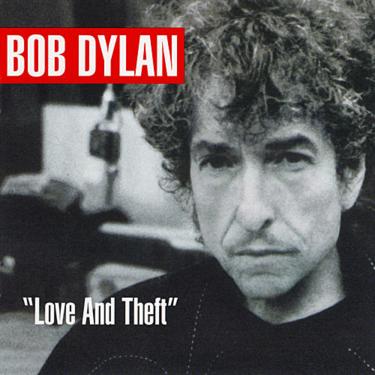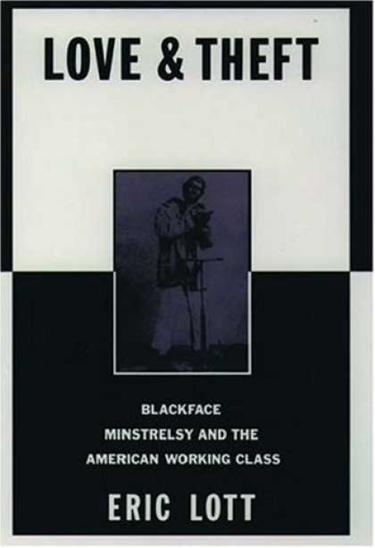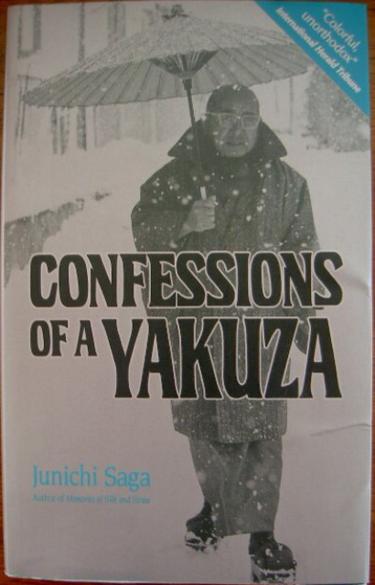Did Bob Dylan Lift Lines From a Japanese Novel for Songs on “Love and Theft”?
Here is the latest in a series of examinations into urban legends about music and whether they are true or false. Click here to view an archive of the music urban legends featured so far.
MUSIC URBAN LEGEND: Bob Dylan lifted a number of lines from a Japanese novel for songs on his album “Love and Theft.”
Bob Dylan’s album “Love and Theft” continued the strong “comeback,” of sorts, that Dylan had began with 1997’s Time Out of Mind (which ended up winning Album of the Year at the Grammys).

The album was specifically called “Love and Theft,” not Love and Theft, which is clearly a reference to Eric Lott’s book Love & Theft: Blackface Minstrelsy and the American Working Class.

In Lott’s book, he discusses how, at the heart of blackface was the appropriation of another culture’s, well, culture.
And in Dylan’s album, Dylan sings songs in a variety of different genres extending throughout the last hundred plus years of American music.
In one song, “High Water (for Charlie Patton),” Dylan basically takes most of Charlie Patton’s song “High Water” and writes a new song around it.
So it perhaps is not much of a surprise that it later was revealed that Dylan had appropriated a large number of lines from a book into the lyrics of the songs on the album.
The book was a Japanese novel called Confessions of a Yakuza, written by Junichi Saga (with English translations by John Bester).

Here are a handful of the instances where Dylan appropriated lines from Saga’s novel (it happened about 12 times on the album)…
On the song “Floater,” Dylan sings:
My old man, he’s like some feudal lord, Got more lives than a cat
In the book, Saga writes:
My old man would sit there like a feudal lord
In the song “Po’ Boy,” Dylan sang:
My mother was a daughter of a wealthy farmer, / My father was a travelin’ salesman, I never met him. / When my mother died, my uncle took me and he ran a funeral parlor. / He did a lot of nice things for me and I won’t forget him.
In the book, Saga wrote:
My mother…was the daughter of a wealthy farmer…(she) died when I was eleven…my father was a traveling salesman…I never met him. (my uncle) was a nice man, I won’t forget him…After my mother died, I decided it’d be best to go and try my luck there.
In the song “Honest With Me,” Dylan sings:
Some things are too terrible to be true, / I won’t come here no more if it bothers you.
In the book, Saga writes:
I won’t come anymore if it bothers you
In the song “Lonesome Day Blues,” Dylan sings:
Samantha Brown lived in my house for about four or five months. / Don’t know how it looked to other people, I never slept with her even once.
In the book, Saga writes:
Just because she was in the same house didn’t mean we were living together as man and wife…I don’t know how it looked to other people, but I never even slept with her–not once.
Thanks to Chris Johnson for the comparisons! Check out more of Chris’s comparisons here.
As you can see, it’s pretty clear, but at the same time, we’re talking about 12 snippets from the book sprinkled over the entirety of the album, an album that is specifically ABOUT appropriating other people’s stuff.
So is it odd?
Certainly.
But I also don’t think it’s THAT big of a deal, and Saga went on the record as saying he didn’t mind (and he liked the bump in sales his book received when the news got out about Dylan using lines from his book), so it really doesn’t rise beyond “Huh, that’s odd.”
But it DID happen, so the legend is…
STATUS: True
Thanks again to Chris Johnson for the line comparisons!
Feel free (heck, I implore you!) to write in with your suggestions for future installments! My e-mail address is bcronin@legendsrevealed.com.





